REIGN OF SILENCE
A static shot shows part of a landscape, a serene body of water in front of a mountain. A motorboat enters the picture from the right, obeying the directions sent by radio and forming a spiral in the water´s surface. The boat then turns to the left and leaves the scene; solely its wake is visible for a time.
Reign of Silence records a human intervention in nature. Lukas Marxt employs as aesthetic material and artistic medium an untouched, barren landscape that’s strangely surreal, where humans aren´t really expected. In this reduced setting he plays with the fascinating aspect of an autonomous nature, made visible by his aesthetic action; with the constantly changing relationship between humankind, environment and water; with processes of temporality and perception.
The conceptual reference to Land Art is obvious, and also to Robert Smithson´s iconic Spiral Jetty, which can be read ironically. But Reign of Silence represents more than a kind of filmic memory of a passing moment. The film not only documents something, it actually lays the filmic image over this landscape like a transparency, as a second artistic medium, indicating something beyond it and expanding the perspective. Marxt looks for a perceptual dimension that demands not only a reaction to nature as a spectacle, but also to the circumstances in which it was reproduced, and finds for this purpose a concentrated and playful form. Until it all ends as it began: with a view of serene, undisturbed water and in silence, with a form that finds its way back to itself, and which has transitioned to something different. (Source: Barbara Pichler)
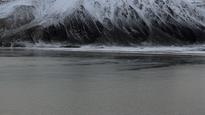
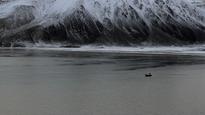
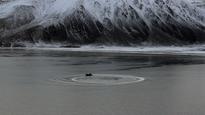
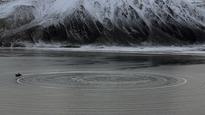
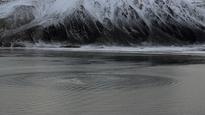
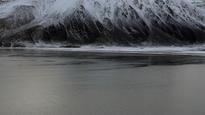
- Format DIGITAL FILE(DIGITAL FILE)
- Color system PAL
- Color col.
- Year 2013
- Duration 00:07:00
- Languageinfo
Spoken: English UK
-
Artists
-
EVENTS